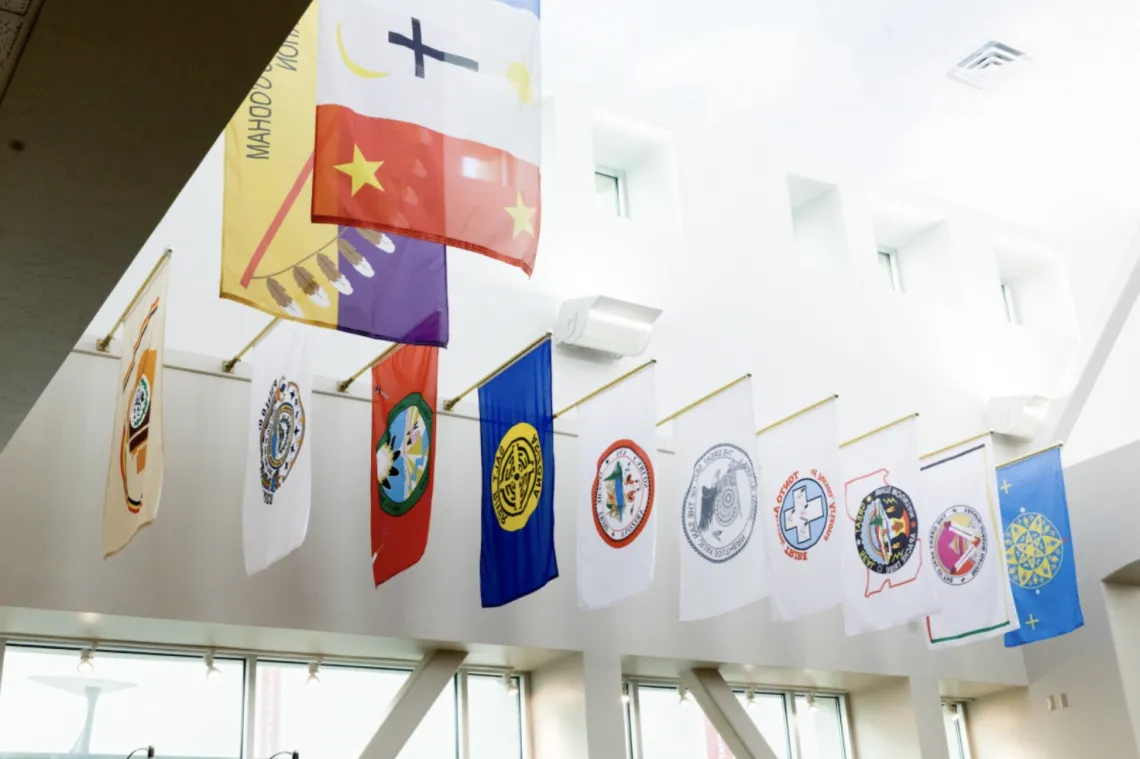Supporting Indigenous Entrepreneurs

The following story was originally published by autm.net
As part of the EDI committee’s continued effort to educate the tech transfer community on better ways to support underrepresented communities, we oftentimes are given the opportunity to highlight the work of exceptional programs that support these groups.
Recently, the University of Arizona created Native FORGE to support Indigenous entrepreneurs from Arizona’s 22 federally recognized tribes. Lisa Mueller, Chair-Elect of the EDI committee, talked with Brian Ellerman, Founding Director of Arizona FORGE on the creation of Native FORGE, what’s next for the program, and how others can model a similar program.
How did Native FORGE come to be? What were some steps your group took in the process of creating the organization?
The Economic Development Administration University Center (UC) program is “focused on leveraging university assets to build regional economic ecosystems that support innovation and high-growth entrepreneurship, resiliency, and inclusiveness.” Levi Esquerra , the Senior Vice President for the University of Arizona office of Native American Advancement and Tribal Engagement (NAATE), had worked with the EDA previously on a tribally-focused University Center at Northern Arizona University. When Levi came to the University of Arizona, he wanted to build on that success by identifying assets at the University of Arizona to support tribal entrepreneurship.
Esquerra partnered with University of Arizona FORGE (Finding Opportunities and Resources to Grow Entrepreneurs) where we were looking to expand the successful Venturing 101 curriculum through a growing Mentor-in-Residence network. We saw a meaningful opportunity to provide mentoring and other services to tribal communities. After meeting with the EDA’s regional program officer, we applied for the program detailing our goals and framework for supporting tribal entrepreneurship. Native FORGE was selected in July for a 5-year award to work with the 22 federally recognized tribes in Arizona.
How does Native FORGE encourage tribal entrepreneurship and build local tribal economies?
This program is built on pairing educational empowerment with expert mentoring. It begins with a tribe nominating entrepreneurs to participate. Tribal leaders can factor in strengths and opportunities, as well as entrepreneurial experience, in making their selection. Selected participants are set up with tools and technology to help them succeed. They will work through a FORGE curriculum that combines lean canvas, financial literacy (in partnership with the Singleton Foundation), intellectual property (in partnership with the Michelson 20MM Foundation), and other fundamental venture concepts. This process stimulates and encourages entrepreneurial thinking.
Participating entrepreneurs are paired with Rafael Tapia, a dedicated Native FORGE Mentor-in-Residence (MiR) from the Pascua Yaqui Tribe and Vice President of Programs at Partnership With Native Americans (PWNA). Tapia has done extensive work with tribal communities across nine states. Participating entrepreneurs meet regularly with Tapia and other members of the FORGE MiR staff to gain industry specific advice and refine business models.
How can other universities look to your model to implement programs to support underrepresented communities?
We were very intentional in building this on a scalable and flexible framework because it’s easy to imagine this expanding beyond Arizona’s borders. At the same time, we had to take care to keep the program centered on the communities. History is littered with examples where the ‘solution’ is formulated centrally, in isolation, instead of starting with questions and allowing for different answers.
This program is intended to be a two-way communication where tribal entrepreneurs gain business resources they can implement and share within their own communities and the University of Arizona learns how to leverage assets to best support the specific needs of tribal entrepreneurs. As part of the program, FORGE will be developing culturally specific and relevant curricula as part of its Venturing 101 framework. Other universities looking to implement something similar should start with a modular, lightweight curriculum and combine this with expertise drawn directly from the community. And ask lots of questions.
What sort of training and professional development opportunities are offered through Native FORGE?
Much of FORGE’s focus to date has been on campus with University of Arizona students and local startup entrepreneurs. FORGE offers venture education, mentoring, coaching, exposure to the venturing process, readiness assessment tools and services and access to resources critical for scale and launch. Our plan is to make these resources available to Native FORGE participants as they come on board and decide what’s needed. We don’t want to go charging in with solutions. Tapia was chosen because of his extensive experience with process improvement and small business revenue generation. In other words, the kinds of things most early-stage entrepreneurs struggle with in getting their businesses off the ground.
What’s next for Native FORGE that you’re most excited about?
The culminating experience for Native FORGE participants is an annual conference taking place at our FORGE at Roy Place flagship location in downtown Tucson on November 2nd. On the first day, tribal entrepreneurs will meet business leaders, fellow entrepreneurs, and angel investors. On the second day, they will attend a conference for new investors and IdeaFunding, one of Arizona's largest entrepreneurial conferences and pitch competitions. We are excited about the connections and access to capital for the participating entrepreneurs. Simultaneously, we are hoping these introductions lead to greater diversity in investment and exposure to new voices in our ecosystem.

